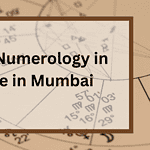Malta Family Retirement – Evaluating Costs, Benefits, and Requirements for Your Dream Life
Retiring in Malta with Family: Is It Worth It? A Comprehensive Guide to Costs, Conditions, and Requirements with Tips, Examples, and FAQs
- Malta, a small Mediterranean archipelago nestled between Sicily and the North African coast, has become a popular retirement destination for many ex-pats in recent years.
- With its stunning landscapes, rich history, and pleasant climate, Malta offers a unique combination of attractions that make it an appealing choice for retirees and their families.
- But is retiring in Malta truly worth it? And what are the costs, conditions, and requirements involved in making the move?
- In this comprehensive guide, we’ll explore the advantages and drawbacks of retiring in Malta with your family, as well as the associated expenses and the necessary steps to make your dream retirement a reality.
- We’ll provide helpful tips, and real-life examples, and answer frequently asked questions to help you make an informed decision about whether retiring in Malta is the right choice for you.
Advantages of Retiring in Malta with Family
- Climate
-
- Malta boasts a Mediterranean climate, characterized by hot, dry summers and mild, wet winters. With an average of 300 days of sunshine per year, Malta’s pleasant weather is a significant draw for retirees seeking a warm and sunny retirement destination.
- Language
-
- English is an official language in Malta, alongside Maltese, which makes communication and day-to-day life much easier for English-speaking retirees. This linguistic advantage also extends to government services, healthcare, and education, making the transition to life in Malta smoother for both you and your family.
- Healthcare
-
- Malta’s healthcare system is consistently ranked among the best in the world. Public healthcare is accessible and affordable, and there are also numerous private healthcare providers available for those who prefer additional coverage. As a retiree in Malta, you can enjoy peace of mind knowing that you and your family have access to high-quality healthcare services.
- Safety
-
- Malta is known for its low crime rates and overall safety, making it an attractive retirement destination for families seeking a secure environment to enjoy their golden years.
- Lifestyle and Culture
-
- From its rich history and beautiful architecture to its vibrant festivals and warm, welcoming people, Malta offers a unique and enjoyable lifestyle that many retirees find appealing. Additionally, Malta is home to a thriving expat community, providing opportunities to connect with other like-minded individuals and families.
Costs of Retiring in Malta with Family
- While Malta offers many advantages for retirees and their families, it’s essential to consider the cost of living to determine if it’s a feasible option for your retirement. Factors such as housing, groceries, utilities, transportation, and healthcare all contribute to the overall cost of living in Malta.
- Housing
-
- Housing costs in Malta can vary significantly depending on factors such as location, property type, and size.
- On average, a two-bedroom apartment in a popular area can range from €800 to €1,200 per month, while a three-bedroom house in a more rural location may cost between €1,000 and €1,500 per month.
- It’s crucial to research the housing market thoroughly and consider visiting Malta to view properties in person before making any decisions.
- Groceries
-
- The cost of groceries in Malta is generally higher than in other European countries, mainly due to the island’s reliance on imported goods. However, shopping at local markets and choosing seasonal produce can help to reduce grocery expenses.
- Utilities
-
- Utility costs, such as electricity, water, and gas, are typically higher in Malta compared to other European destinations. To help offset these expenses, consider energy-efficient appliances and be mindful of your usage.
- Transportation
-
- Public transportation in Malta is affordable and well-connected, with a comprehensive bus network serving the entire archipelago. A monthly public transportation pass costs around €26 for adults and €15 for children. Owning a car in Malta can be more expensive due to fuel prices and maintenance costs, but it provides greater flexibility and convenience for families.
- Healthcare
-
- As mentioned earlier, Malta offers a high-quality public healthcare system that is accessible and affordable for residents. However, many retirees choose to purchase private health insurance for additional coverage and faster access to specialists. The cost of private health insurance varies depending on factors such as age, coverage, and provider but can range from €50 to €200 per month for a family.
Conditions and Requirements for Retiring in Malta with Family
- To retire in Malta with your family, you will need to obtain a residence permit. There are several options available for retirees, including the Malta Retirement Programme (MRP), the Global Residence Programme (GRP), and the Malta Golden Visa Programme.
- The MRP is a residential program specifically designed for retirees who receive a pension as their primary source of income. To be eligible for the MRP, you must:
-
- Be an EU, EEA, or Swiss national
- Have a pension that makes up at least 75% of your total income
- Rent or purchase a property in Malta (minimum annual rent of €9,600 for properties in Malta or €8,750 for properties in Gozo, or minimum property purchase value of €275,000 in Malta or €250,000 in Gozo)
- Reside in Malta for at least 90 days per year, averaged over a five-year period
- Have valid health insurance that covers you and your dependents in Malta
- Pass a “fit and proper” test, which includes a background check and proof of financial stability
- Global Residence Programme (GRP)
- The GRP is aimed at non-EU, EEA, or Swiss nationals who wish to establish tax residency in Malta. To qualify for the GRP, you must:
- Rent or purchase a property in Malta (minimum annual rent of €9,600 for properties in Malta or €8,750 for properties in Gozo, or minimum property purchase value of €275,000 in Malta or €250,000 in Gozo)
- Pay a minimum annual tax liability of €15,000 on foreign income remitted to Malta
- Have valid health insurance that covers you and your dependents in Malta
- Pass a “fit and proper” test, which includes a background check and proof of financial stability
- Malta Golden Visa Programme
- The Malta Golden Visa Programme grants residency to non-EU, EEA, or Swiss nationals who make a qualifying investment in Malta. To be eligible, applicants must:
- Invest at least €250,000 in Maltese government bonds, to be held for a minimum of five years
- Rent or purchase a property in Malta (minimum annual rent of €12,000 for properties in Malta or €10,000 for properties in Gozo, or minimum property purchase value of €320,000 in Malta or €270,000 in Gozo)
- Pay a one-time contribution of €30,000 to the Maltese government
Tips for Retiring in Malta with Family
- Research and visit Malta before making a decision: Spend time researching Malta’s culture, lifestyle, and cost of living to determine if it aligns with your retirement goals. Visiting Malta in person will also provide valuable insights and help you make an informed decision.
- Network with other ex-pats and retirees: Connect with ex-pat communities and retirees already living in Malta to learn from their experiences and gain valuable advice.
-
- Consult a local expert or attorney: Seek professional guidance from a local expert or attorney to help navigate the legal requirements for obtaining residency and ensure that your retirement plans align with Maltese regulations.
- Consider the long-term needs of your family: Assess the educational, healthcare, and social needs of your family when planning your retirement in Malta. Research the availability and quality of schools, healthcare providers, and community resources to ensure a comfortable and fulfilling life for your loved ones.
- Plan for a smooth transition: Prepare and organize all necessary documentation, such as passports, visas, health insurance, and financial records, well in advance of your move. This will help to streamline the relocation process and reduce stress during your transition to life in Malta.
Frequently Asked Questions FAQs
- Q: Is Malta a good place for children and teenagers?
- A: Malta offers a safe environment, high-quality education, and a range of leisure activities for children and teenagers. However, it’s essential to consider your child’s specific needs and preferences when deciding if Malta is the right fit for your family.
- Q: Can I work or start a business in Malta as a retiree?
- A: Depending on the type of residence permit you obtain, you may be allowed to work or start a business in Malta. However, some residence programs, such as the MRP, specifically cater to retirees who do not intend to work or engage in economic activities in Malta.
- Q: How can I maintain my tax residency in my home country while living in Malta?
- A: Tax residency rules vary depending on your home country’s regulations. It’s crucial to consult a tax expert or attorney familiar with your country’s tax laws and Malta’s tax system to ensure compliance and avoid potential double taxation.
- Q: Can my family members work or study in Malta?
- A: Family members who are included in your residence permit application may be allowed to work or study in Malta. However, specific rules and requirements may apply depending on the type of residence permit and the individual’s nationality.
Conclusion
- Retiring in Malta with your family can offer numerous benefits, including a pleasant climate, high-quality healthcare, safety, and an enjoyable lifestyle. However, it’s essential to consider the costs and requirements involved in relocating to Malta, as well as the long-term needs of your family.
- By researching Malta’s lifestyle, cost of living, and residency programs, you can make an informed decision about whether retiring in Malta is the right choice for you and your family. With careful planning and preparation, you can enjoy a fulfilling retirement in this beautiful Mediterranean paradise.
Join Our Newsletter
To stay up-to-date on the latest news and information regarding Immigration to the Caribbean Islands, European Union, UK, USA, Canada and Real Estate Projects in India and Globally. ☑ I accept and agree Privacy Policy.



